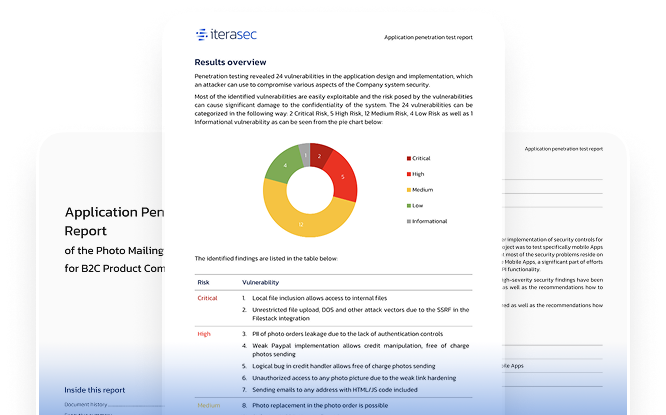Importance of API Penetration Testing
In the modern digital ecosystem, Application Programming Interfaces (APIs) are integral to web and mobile applications, microservices architectures, and IoT devices. They enable seamless communication and data exchange between different software components. However, this widespread use of APIs also expands the attack surface, making them prime targets for cyber threats.
Diverse API Types and Their Security Challenges
RESTful APIs
Widely used for their simplicity and scalability, RESTful APIs utilize standard HTTP methods like GET, POST, PUT, and DELETE. However, improper implementation can lead to vulnerabilities such as insufficient authorization checks or exposure of sensitive endpoints.
SOAP APIs
Relying on XML messaging, SOAP APIs offer built-in error handling and compliance standards. Misconfigurations can make them susceptible to attacks like XML External Entity (XXE) injection or disclose sensitive information through detailed error messages.
GraphQL APIs
Allowing clients to request specific data, GraphQL APIs reduce over-fetching but can be vulnerable to complex query attacks that lead to denial-of-service (DoS) or expose unintended data through introspection queries if not properly secured.
WebSocket and gRPC APIs
These facilitate real-time, bidirectional communication. Security challenges include ensuring proper authentication and encryption over persistent connections to prevent unauthorized access and data interception.
Risks Associated with Third-Party Integrations
Inherited Vulnerabilities
Third-party APIs may have their own security flaws, which attackers could exploit to compromise your systems.
Limited Oversight
You have less control over the security measures and update cycles of external providers, potentially leading to inconsistent security standards.
Data Privacy Concerns
Sharing data with third parties raises questions about data handling practices and compliance with privacy regulations like GDPR or CCPA.
Complex Attack Vectors Targeting APIs
Broken Object Level Authorization (BOLA)
Manipulating object identifiers to access or modify data belonging to other users.
Mass Assignment
Exploiting the binding of client-provided data to internal objects, allowing unauthorized property changes.
Injection Attacks
Such as SQL, NoSQL, or command injections, where attackers send malicious data to execute unintended commands.
Parameter Tampering
Altering parameters in API requests to bypass security checks or manipulate data.
API Penetration Testing Services we Provide
Traditional security measures may not fully address the unique risks associated with different API types and integrations. Strong API penetration testing is essential to:
Identify Hidden Vulnerabilities
Uncover security flaws that standard testing might miss, including those specific to your API technologies.
Assess Third-Party Risks
Evaluate the security of third-party APIs integrated into your systems to prevent external vulnerabilities from impacting your organization.

Protect Sensitive Data and Business Logic
Ensure that data transmitted through APIs is secure from interception or unauthorized access, and that business logic cannot be manipulated.
Maintain Service Integrity and Performance
Prevent disruptions by securing APIs against attacks that could degrade performance or availability, such as DoS attacks or rate-limiting bypasses.
Ensure Compliance with Standards and Regulations
Align with industry regulations requiring regular security assessments, including OWASP API Security Top 10, PCI DSS, HIPAA, and GDPR.
Why Choose Our API Penetration Testing Services
Iterasec API pentesting are distinguished by our:Expert Cybersecurity Team
Our team of security experts finds juicier and more complex security vulnerabilities than other vendors.
Pragmatic Approach
We start with threat modeling and tailor our testing methodologies to suit your specific application requirements.
Delivery Quality
On-time, clear communication, proactive. Underpromise, overdeliver – that’s our motto.

Protect your applications by ensuring your APIs are secure. Contact us today to learn how our API penetration testing services can help safeguard your business.
Contact usExpert Cybersecurity Team
Cybersecurity is an industry of constant learning. Each of our colleagues has a professional and certification development plan.
Discover All Steps of Iterasec API Pentesting Process
During our audit, we rely on the NIST, OWASP, OSSTM, CIS Benchmark, and other methodologies. While employing some automated scanning tools, we also perform manual expert security testing: such an approach proves to be the most practically valuable.
We keep clients informed in the course of the project, providing regular status updates and immediate notifications for critical findings.
Discover all the steps in our container security services process:
- 1A kick-off meeting to agree on the scope, inputs and communication
- 2Cloud pentest (2-5 weeks, depending on the scope)
- 3The final report that highlights the identified cloud security issues

Explore our sample security testing service report
Don't leave your APIs exposed to potential threats. Get in touch with us to discuss how our API security testing services can help protect your applications.
Contact usWhat Clients Say About Our API Security Testing Company
Awards and Recognitions
2023
Top cybersecurity consulting company
2023
Top cybersecurity consulting company
2023
Top ponetration testing company
Related Cyber Security Services
FAQ
API penetration testing can identify a range of vulnerabilities, including:
Authentication Flaws: Issues that allow unauthorized access.
Authorization Weaknesses: Incorrect enforcement of user permissions.
Injection Vulnerabilities: Susceptibility to SQL, NoSQL, or command injections.
Data Exposure: Unintentional exposure of sensitive information.
Business Logic Errors: Flaws that could be exploited to alter intended operations.
Rate Limiting Issues: Lack of controls to prevent abuse through excessive requests.
Security Misconfigurations: Improper settings that weaken security defenses.
By detecting these issues, you can take corrective actions to strengthen your API security.
Failing to properly test APIs can lead to:
Data Breaches: Exposure of sensitive data to unauthorized parties.
Service Disruptions: Downtime caused by attacks exploiting API vulnerabilities.
Compliance Violations: Non-compliance with regulations requiring security assessments.
Financial Losses: Costs associated with breach response and recovery.
Reputational Damage: Loss of customer trust due to security incidents.
Regular API penetration testing helps mitigate these risks by identifying and addressing vulnerabilities.
To prepare for API pentesting:
Provide Documentation: Share API specifications, including endpoints and authentication methods.
Set Up a Testing Environment: Create an environment that mirrors production without sensitive data.
Ensure Access: Provide necessary credentials and access tokens.
Communicate Internally: Inform your team about the testing to avoid confusion.
Define the Scope: Clearly outline what is included in the test.
Proper preparation ensures an efficient testing process and accurate results.
Performing API penetration testing on production environments is generally not recommended due to the risks of disrupting services, causing instability, or exposing sensitive data. Testing simulates real attacks, which might negatively impact live systems and end-users. If it must be done, it should be approached with extreme caution: obtain proper authorization, limit the scope, schedule during low-traffic periods, implement safeguards, monitor systems closely, and ensure all data is backed up. Ideally, testing should be conducted in a staging or test environment that replicates production without affecting actual users.
API penetration testing enhances overall security by identifying and addressing vulnerabilities before they can be exploited. By uncovering flaws like authentication weaknesses, authorization errors, and input validation issues, organizations can strengthen their security posture. This proactive approach helps prevent data breaches, ensures compliance with industry regulations like OWASP and PCI DSS, and builds trust with clients and stakeholders. Ultimately, it contributes to a more robust and resilient security infrastructure.
Contacts
Please tell us what are you looking for and we will happily support you in that. Feel free to use our contact form or contact us directly.
Thank you for submission!
We’ve received your request and will get back to you shortly. If you have any urgent questions, feel free to contact us at [email protected]



